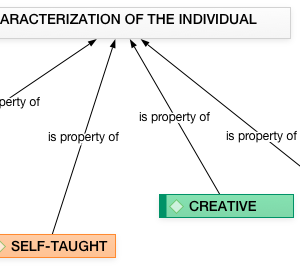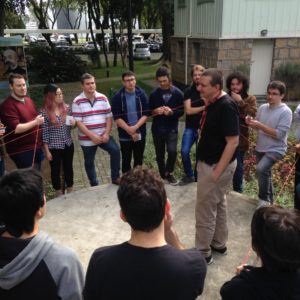Since 2013, Apple has a partnership with several Brazilian Universities to offer an educational program to attract and train new software developers in their mobile application ecosystem. The program is called Apple Developer Academy and it includes everything a newcomer needs to develop a new app. The program is customized for each partnership to better fit the needs of its geographical context.
Between 2018 and 2019, Frederick helped Apple Developer Academy at PUCPR to include a design perspective on app development. In this University, the program lasts for 2 years, and students are encouraged to create applications from their own ideas and business intentions, effectively becoming entrepreneurs if they like it. Due to the App Store competition, students are encouraged to be creative and provide unique user experiences for their applications.
Frederick noticed that the program was configured almost like an interaction design studio: students had the freedom to develop their own projects, they could work autonomously, and they had plenty of advanced technology to experiment with. The only thing that was lacking there were designers. From 2018 onwards, the program opened positions for design students and offered an integrated design curriculum that even developers had to go through. The goal was to train students into a hybrid profile, the so-called devigner (developer + designer).
The devigner is someone capable of articulating both design and computing knowledge in the same project. In order to show that this was possible, Frederick introduced the Creative Coding style of programming in the studio, which resulted in earning a handful of WWDC Apple student scholarships.
The major changes introduced by Frederick were:
- Opening the program to design students and, consequently, for women
- Cultivating design values as much as computing values
- Organizing public design critiques
- Caring for use qualities
- Stimulating reflective practice
- Harnessing visual thinking
- Using tangible prototyping for ideation, mainly with Lego
- Students participating in educational planning
- Sharing knowledge from self-reflections in a Medium website
Since then, the program became much more focused on creativity, innovation, and business and less focused on mastering the technology. This transition became the subject of a research project at PUCPR, which included co-supervising two Master thesis from the Informatics program, one about the studio’s reflective practice and the devigner profile.
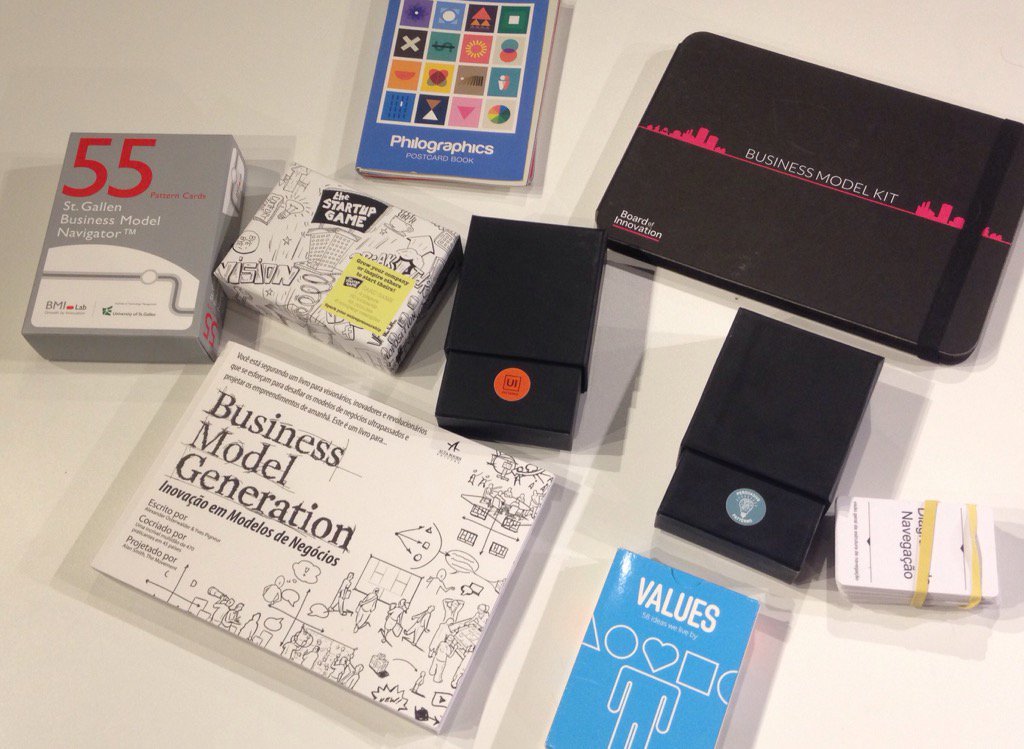
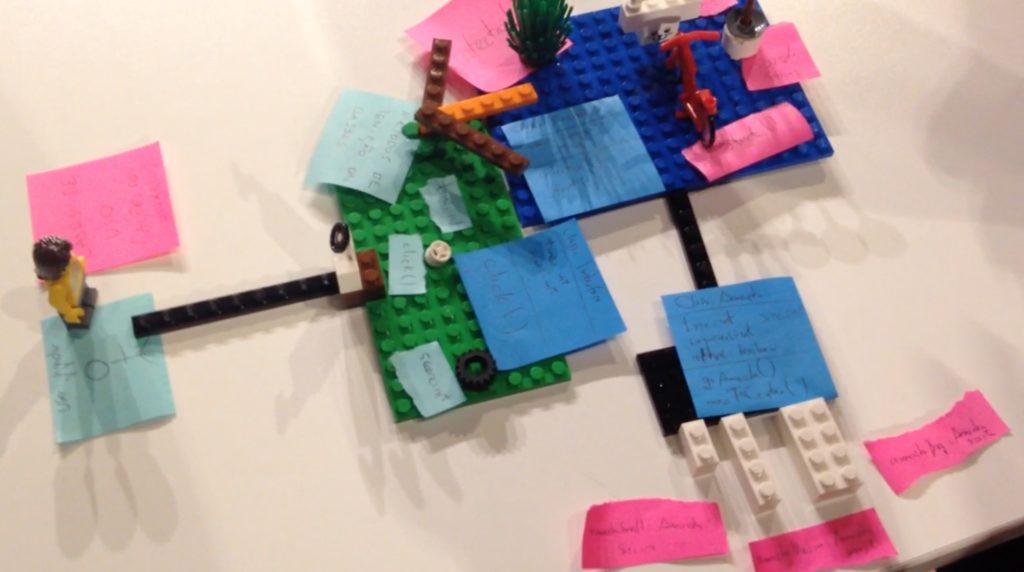
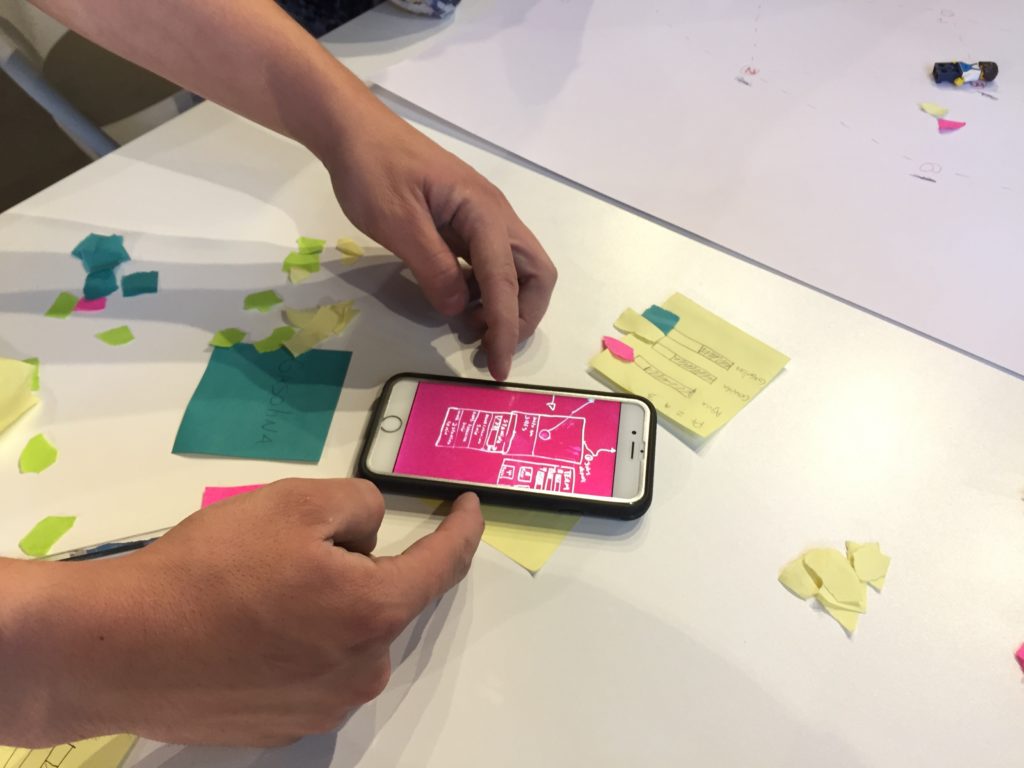
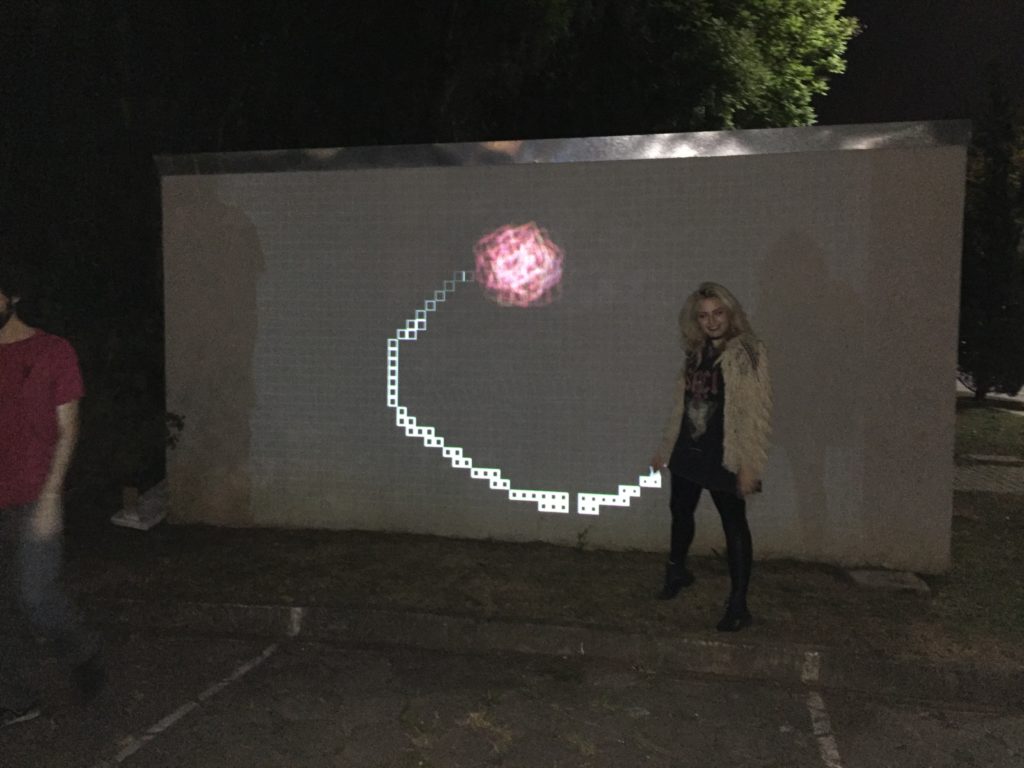
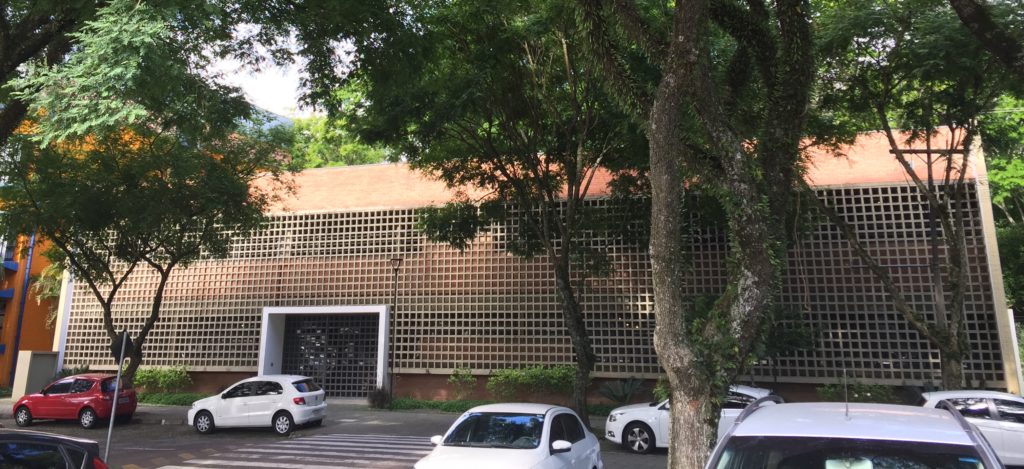
Publications
Dors, Tania M.; van Amstel, Frederick M.C.; Binder, Fabio; Reinehr, Sheila dos Santos; Malucelli, Andreia. (2020). Reflective Practice in Software Development Studio: findings from an ethnographic study. In: Proceeding of the 32nd Conference on Software Engineering Education and Training (CSEE&T), Munich. 10.1109/CSEET49119.2020.9206217
Harmuch Neto, Elias; van Amstel, Frederick M.C.; Binder, Fabio; Reinehr, Sheila dos Santos; Malucelli, Andreia. (2020). Trajectory and traits of devigners: a qualitative study about transdisciplinarity in a software studio. In: Proceeding of the Conference on Software Engineering Education and Training (CSEE&T), Munich. 10.1109/CSEET49119.2020.9206180
